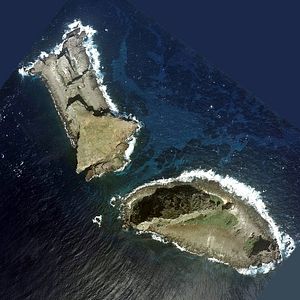It’s getting tougher to keep on top of all the friction between China and countries along its territorial peripheries lately. After all, with ongoing spikes in disputes in the South China Sea, with India, and — as of a few days ago — with Bhutan, there’s a lot to take in.
The East China Sea, where China unilaterally declared an air defense identification zone in 2013, continues to be an important hotspot for Chinese irredentist behavior. Beijing continues to claim the Japan-administered Senkaku Islands and it appears that, along with growing tensions elsewhere, the China-Japan dispute over these islets is heating up again.
Last week, Japan Coast Guard officials said that Chinese patrol ships entered the 12-nautical-mile claimed territorial waters around the disputed islands and remained there for “an extended time.” According to NHK News, the Japan Coast Guard said that the incursion last week “was the longest intrusion into the territorial waters by Chinese ships since the Japanese government purchased some of the Senkaku Islands from a private Japanese owner in 2012.” The incursion lasted for around 30 hours.
That’s a notable benchmark. Of course, Chinese forays into the territorial sea and contiguous zone around the islands have been nothing new. After high tensions and a diplomatic chill between the September 2012 nationalization of the islands by the Japanese government, relations between Beijing and Tokyo returned to a more normal baseline by around 2015.
The latest incursion, similarly, comes at a time when relations between Tokyo and Beijing weren’t necessarily destined for greater friction. Since around 2018, the Abe administration has sought to manage its relationship with China more evenly — particularly in light of greater uncertainty in the United States’ approach to Japan and Asia.
What’s notable about the latest Chinese foray into the territorial sea of the Senkaku Islands is that it comes amid an ongoing, intra-party debate on Japan’s China policy within the ruling Liberal Democratic Party in Japan. A vast tent on foreign policy, views within the LDP on the appropriate course for Japan range from ultranationalistic to more pragmatic.
Last week, a group of LDP lawmakers publicly urged the Abe government to cancel an upcoming state visit by Chinese President Xi Jinping to Japan. The rationale was sound: the implementation of China’s new draconian National Security Law in Hong Kong, these lawmakers argued, must be met with costs.
According to Kyodo News, a draft resolution on the issue notes “strong condemnation” of China’s move in Hong Kong. “We cannot help but doubt whether fundamental values such as freedom, human rights and democracy will be upheld,” the text reportedly reads.
Concerns within the LDP about Hong Kong spiked in May, after the Chinese National People’s Congress met to approve the drafting of the recently passed law. An earlier resolution called on Abe to also reconsider the invitation to Xi.
Judging by China’s ongoing activities in the South China Sea and the Himalayas, the challenge to Japanese sovereignty of the Senkakus in the East China Sea recently appears modest — but it will serve as a reminder to the Abe government of what may await Japan if Tokyo does decide to adopt a harder line publicly toward China.
Of course, the Abe government, despite its attempt to hedge uncertainty with the United States by continuing its engagement with China, does not see Beijing as benign. Tokyo’s defense planning, for instance, continues to consider threats from China as a top concern. Hosting Xi for a summit, as a result, need not be incompatible with continued vigilance in the East China Sea amid a broader focus on deterrence.
This raises the possibility that the incursion — timed as it may be alongside a broader increase in Chinese assertiveness along its periphery — is just business as usual: a continued attempt by China to assert sovereignty around these disputed islands by making its presence known. After all, it appears unlikely that Tokyo’s strategic decision-making will be significantly influenced either way.

































